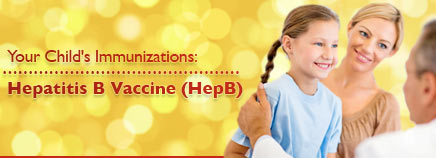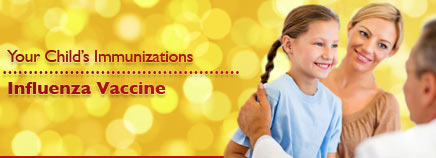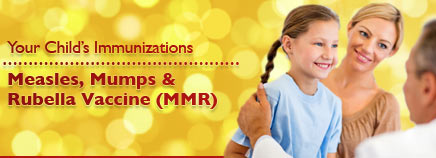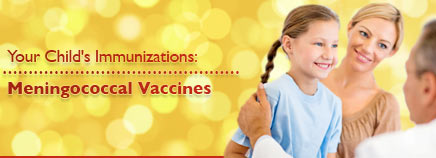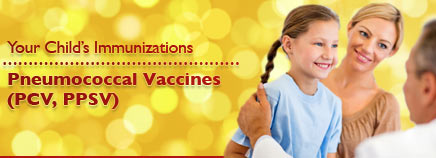The hepatitis A virus (HAV) causes fever, nausea, vomiting, and jaundice, and can lead to community-wide epidemics. Childcare centers are a common site of outbreaks. Immunization Schedule The vaccine is recommended for children 12–23 months old, followed by a second dose 6–18 months later. The vaccine also is recommended for …
Your Child’s Immunizations: Hepatitis B Vaccine (HepB)
Hepatitis B virus affects the liver. Those who are infected can become lifelong carriers of the virus and may develop long-term problems, such as cirrhosis (liver disease) or cancer of the liver. Immunization Schedule Hepatitis B vaccine (HepB) usually is given as a series of three injections: shortly after birth …
Your Child’s Immunizations: Hib Vaccine
Haemophilus influenzae type b bacteria (Hib) were the leading cause of meningitis in children younger than 5 years old until the Hib vaccine became available. Immunization Schedule The Hib vaccine is given by injection at ages: 2 months 4 months 6 months (however, some of the Hib vaccines do not …
Your Child’s Immunizations: Human Papillomavirus (HPV) Vaccine
Human papillomavirus (HPV) is a sexually transmitted disease (STD). It can cause genital warts and changes in the cervix that can result in cervical cancer. It can also lead to cancer in other areas, such as the penis, anus, and throat. Recent research suggests it may even be linked to …
Your Child’s Immunizations: Influenza Vaccine
Influenza — what most of us call “the flu” — is a highly contagious viral infection of the respiratory tract. Immunization Schedule Flu season runs from October to May. It’s best to get a flu vaccine as early in the season as possible, as it gives the body a chance …
Your Child’s Immunizations: Measles, Mumps & Rubella Vaccine (MMR)
The MMR vaccine protects against measles, mumps, and rubella (German measles). Immunization Schedule MMR vaccinations are given by injection in two doses: at age 12–15 months at age 4–6 years Children traveling outside the United States can get the vaccine as early as 6 months of age. These children should …
Your Child’s Immunizations: Meningococcal Vaccines
The meningococcal vaccines protect against meningococcal disease, a serious infection that can lead to bacterial meningitis and other serious infections. Two kinds of meningococcal vaccines are currently given to kids in the United States: The meningococcal conjugate vaccine protects against four types of meningococcal bacteria (called types A, C, W, and …
Your Child’s Immunizations: Pneumococcal Vaccines (PCV, PPSV)
The pneumococcal conjugate vaccine (PCV13) and the pneumococcal polysaccharide vaccine (PPSV23) protect against pneumococcal infections, which are caused by bacteria. The bactera spread through person-to-person contact and can cause such serious infections as pneumonia, blood infections, and bacterial meningitis. PCV13 protects against 13 types of pneumococcal bacteria (the types that cause …
Your Child’s Immunizations: Polio Vaccine (IPV)
Polio is a viral infection that can cause permanent paralysis. Immunization Schedule The inactivated poliovirus vaccine (IPV) is usually given at ages 2 months, 4 months, 6–18 months, and 4–6 years. Though the oral poliovirus vaccine (OPV) is still used in many parts of the world, it has not been …
Your Child’s Immunizations: Rotavirus Vaccine
Rotavirus is a common virus that causes vomiting and diarrhea, especially in infants and young children. Childcare centers are a common site of outbreaks. Immunization Schedule The vaccine, which is a liquid given by mouth, is recommended at ages 2 and 4 months, and again at 6 months, depending on …


